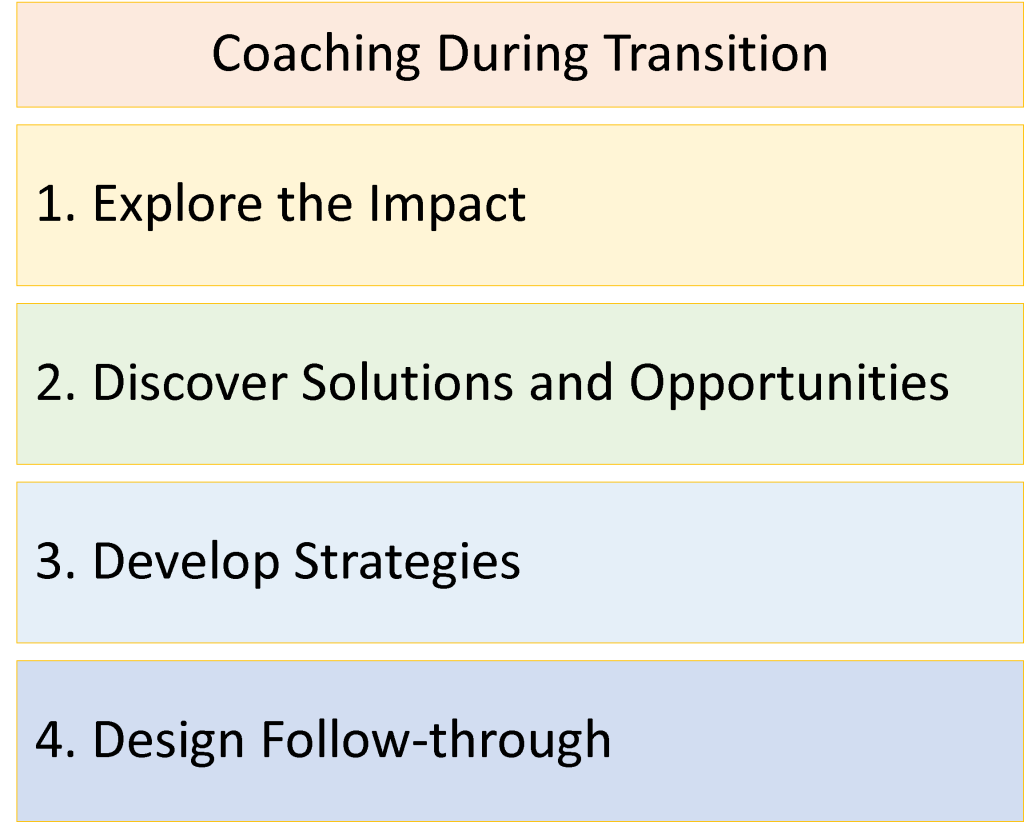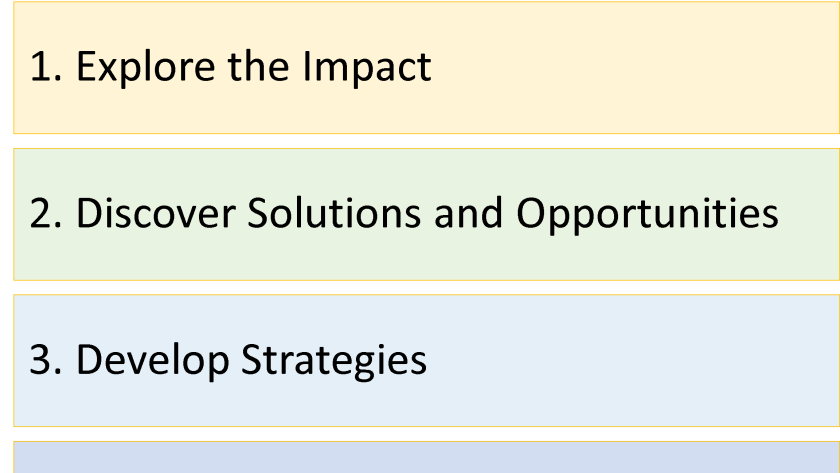
Before the pandemic the majority or workers were accustomed to commuting and working in an office. During the pandemic the majority transitioned to working at home. Late in the pandemic we experienced what was called the Great Resignation or the Big Quit. Now we are hearing about the Big Regret. During these transitions the coaching community adjusted. Coaches that were working face-to-face learned to work on the phone or online. Coaches are trained to flex to the client.
How does coaching help during transition? During coaching sessions, the coach serves as a partner for the following:
- Explore the Impact – during coaching, a client is invited to think out loud and notice what is happening or how the transition changed their circumstances. This process shines a light on what the client wants to address.
- Discover Solutions and Opportunities – during coaching, the coach invites the client to brainstorm and to consider different perspectives or possibilities. Through this process, the client discovers their own solutions and identifies opportunities.
- Develop Strategies – during coaching, the coach invites the client to consider their mindset and attitude, consider the mindsets and attitudes of stakeholders, develop their strategies, and plan their action steps moving forward.
- Design Follow-through – during coaching, the coach will ask the client how they will hold themselves accountable and partner with them to design their own follow-through.
Coaching works through transitions because coaches serve as partners for clients. Coaches support clients in exploring their opportunities, potential barriers, resources, and possible strategies. Coaches support clients to design their own plan of action. Because coaching holds clients as their own best experts, it naturally flexes to the transitions that occur for clients. The coaching process is naturally designed to adjust to transitions and change.
During coach training we learn the Core Competencies of coaches and we learn the Code of Ethics. The competencies guide us to understand the client and their context. We learn to honor the client’s experience. The process of becoming a coach includes preparing us to “dance in the moment” and flex based on the client, their objectives, context, experiences, and transitions.
Coaching will continue to be a valuable service and process in the future.



